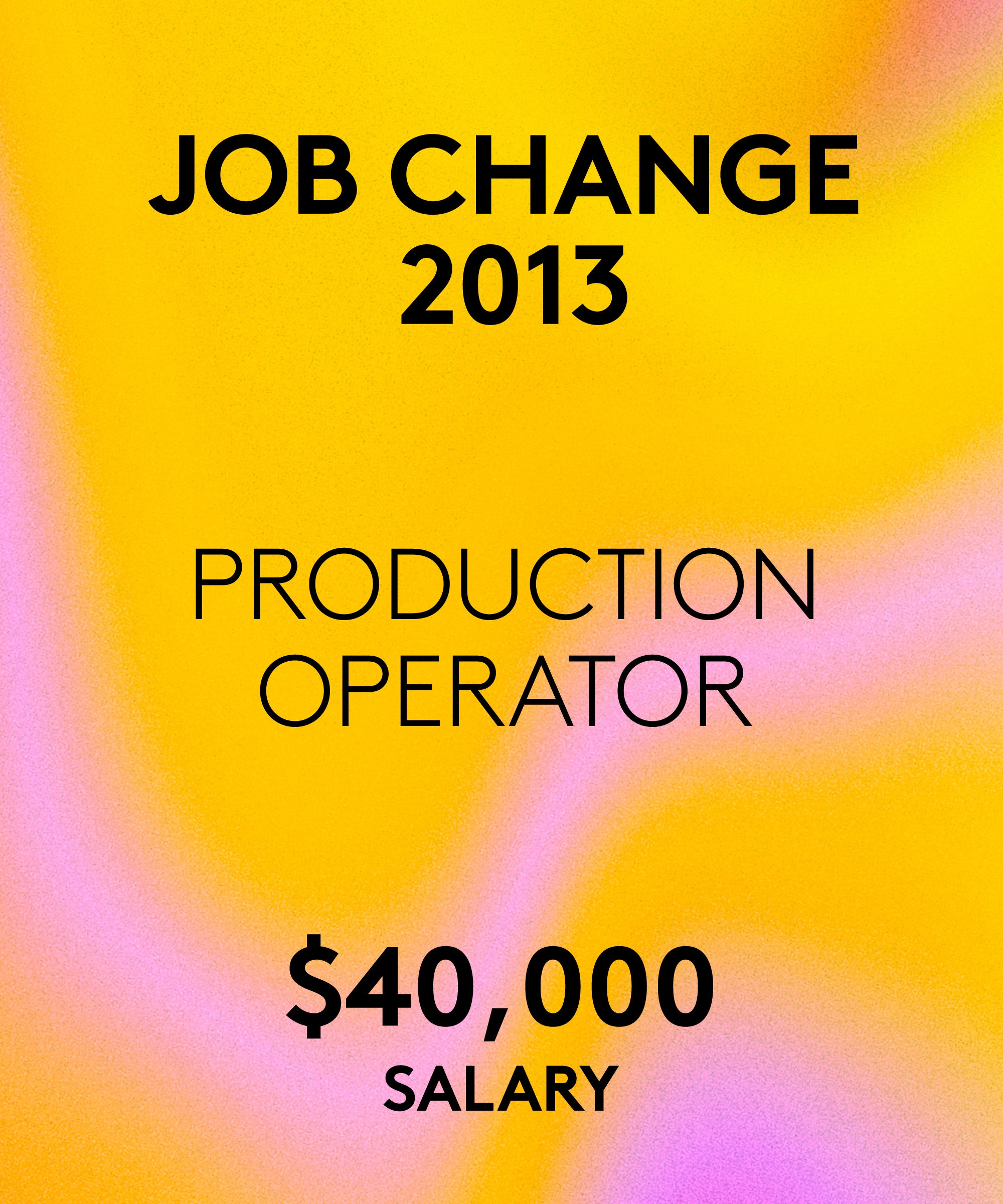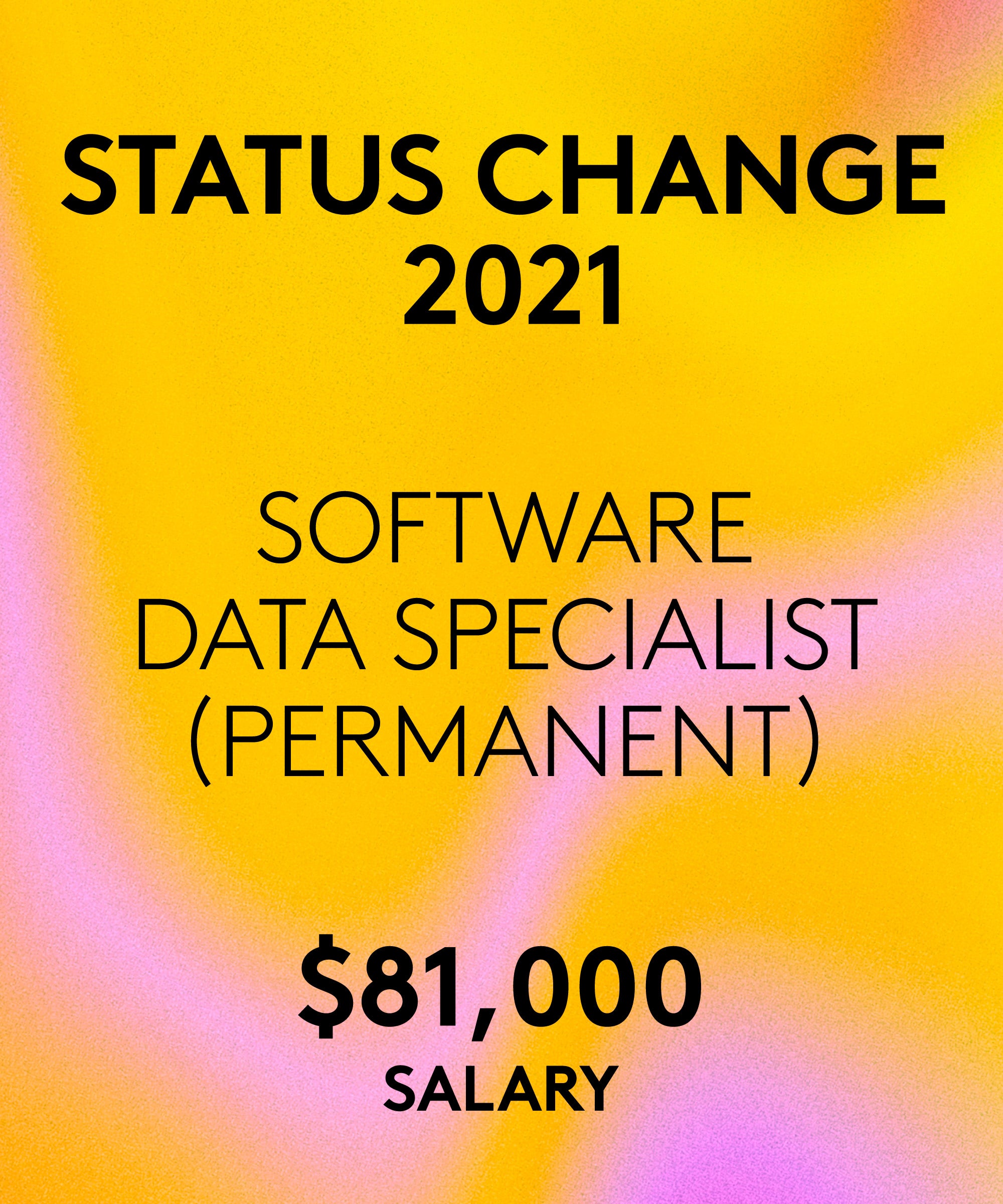Been in the workforce for at least five years and interested in contributing your salary story? Submit your information here.
Age: 35
Location: Philadelphia
Current industry and job title: End-user pharmaceuticals, software data specialist
Current salary: $166,600
Number of years employed since school or university: 13
Starting salary: $400/week
Biggest salary jump: From $81,000 to $166,600 — this is my most recent job switch.
Biggest salary drop: From $89,440 to $81,000 due to changing from a temp to a full-time employee position at the same workplace.
Biggest negotiation regret: Not negotiating harder when switching from a temp to a full-time employee (the salary drop above). I stuck my neck out a little because the first offer was $76,000, which I flatly refused, but even after accepting $81,000, I think I should have negotiated non-salary perks (such as PTO and the sign-on bonus) more.
Best salary advice: Don’t be afraid to take risks on temp and contract work. Don’t feel guilty, even for an instant, when switching jobs. And remember, two-week notices are optional.


This was very tiring work, running production lines and operating heavy machinery, with a swing shift schedule. But it had perks, too, including a tuition reimbursement program through which I got my MBA — an accelerated online program that I finished as soon as possible, while doing this job. Plus, this was a unionized environment, which I felt lucky to be a part of.

I did not negotiate pay — I was so starry-eyed at the $20,000 bump and being able to have a day schedule that the thought of negotiating never crossed my mind (maybe it should have) and I didn’t want to overplay my hand.

This move to the quality assurance department was a quintessential desk job and the biggest workplace culture shock I have ever experienced. I had to communicate with people at the company’s corporate site regarding the salability and supply of product that the plant made. It was an extremely toxic and high-stress environment, and my manager abdicated almost all responsibility for the department. I was easily the most miserable at this job.
However, it also had its perks. The plant was in a constant state of upheaval so there was an abundance of overtime available, for both this position (which paid ($34.62/hour) and for my prior two jobs at this location (I was still allowed to take shifts for those, too — hence the variable salary range during the five years I spent in this role). Initially, I was motivated to work this overtime to build general savings and also funds for a house down payment.
Towards the end of my time here in 2020, I was working close to 60 hours a week to hoard money during the pandemic, because my partner and I were concerned that one or both of us could lose our job.

The commute was half as long as for my prior job, and the hourly pay of $43 meant I would make more money working 40 hours/week than I made working 60 hours/week.
I was paid through a temp agency under a six-month contract, but the position was advertised as temp-to-hire. I deliberated a lot about taking this job because there were so many factors at play: It was the height of the pandemic, and my contract was not guaranteed to extend or result in full-time work. But my old position was absolutely not compatible with life — it was giving me actual heart palpitations — so I accepted.

I did negotiate their initial offer of $76,000 up to $81,000, and I was proud of myself for that. But I do regret a little here: Only after I had signed all the paperwork did I realize that other employees got a sign-on bonus and were able to negotiate their PTO up — neither of which I thought to do. I phased into working 100% remotely for the last year of my employment here.

This was around the time my previous job had announced a three-days-a-week return-to-office policy, which I was very, very salty about. So the prospect of staying 100% remote, while more than doubling my earnings and doing essentially the same type of work, was absolutely astonishing to me.
I tried to negotiate staying remote at my old position but this was shot down so I was 0% sorry about quitting without notice and only coming onsite to hand in my laptop.
I know this puts me in another somewhat precarious contract position, but I’m a little immune to the risk now; hopefully I don’t end up eating those words. Even if my contract isn’t renewed, I’ll be able to save up two years’ worth of living expenses while maintaining my investment rate. I paid off my student debt and my mortgage is low, so I think it was a worthwhile move to make. Plus, finally breaking into the actual end-user pharma industry — instead of the pharma-adjacent ingredients and components spaces — is cool, too, I guess, since it apparently boosts my market rate.
As far as my next career move, I hope to get this current contract extended out as many times as possible, since the work is sustainable for me and I’m happy with the rate. I am also considering approaching the company about taking me on as a part-time employee at maybe $85/hour for 20 hours a week. In a couple of years, I would love some extra work-life balance to pursue hobbies and simply work less. I know I’d be comfortable at that earning rate, and I’d be able to afford marketplace insurance, so it’s worth a shot!
Like what you see? How about some more R29 goodness, right here?
I Got My Dream Job, Despite My Imposter Syndrome
I Used This Strategy To Get My Biggest Salary Jump
I Asked For The Top Of The Salary Scale & Got It
from Refinery29 https://ift.tt/fgUouFD
via IFTTT
